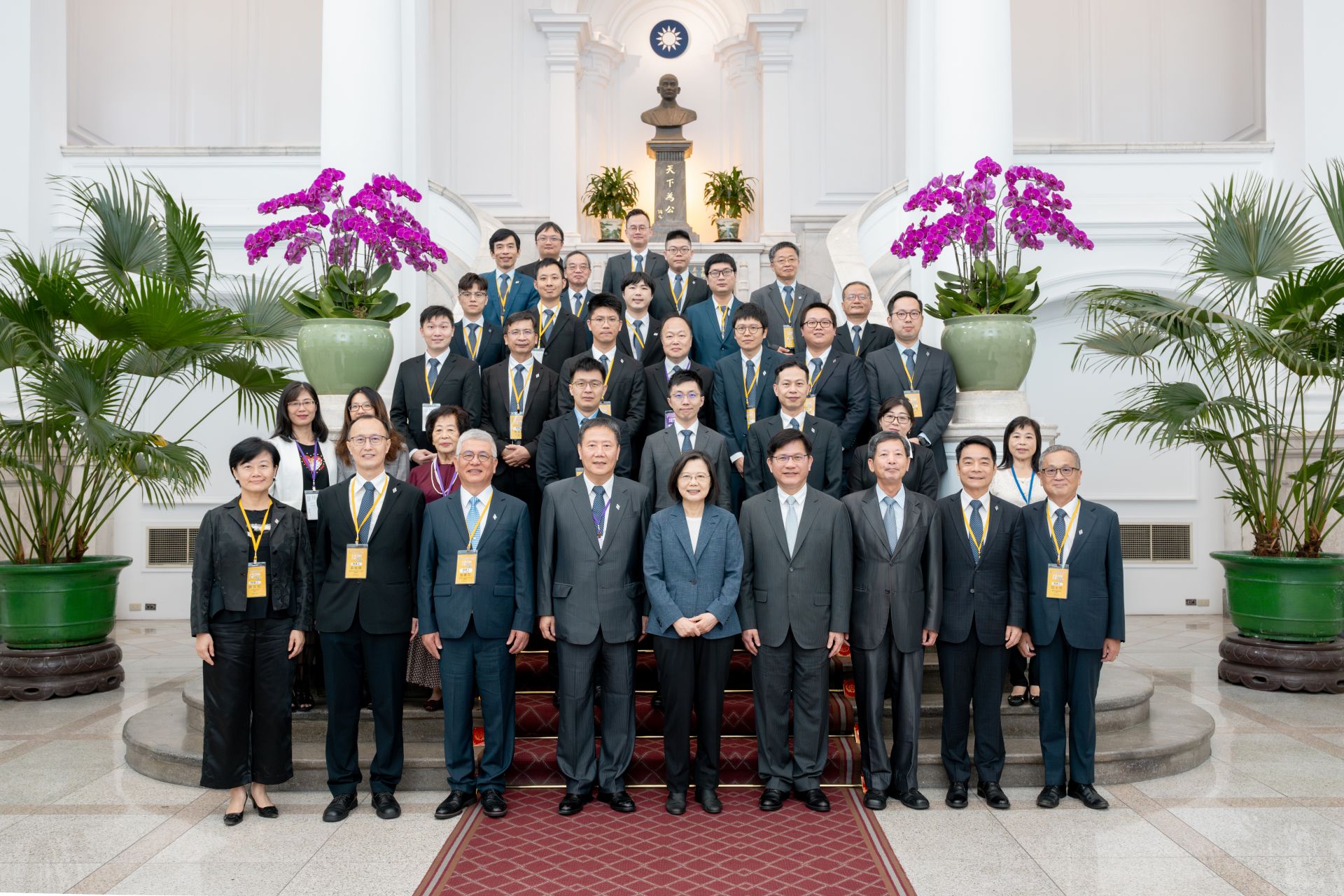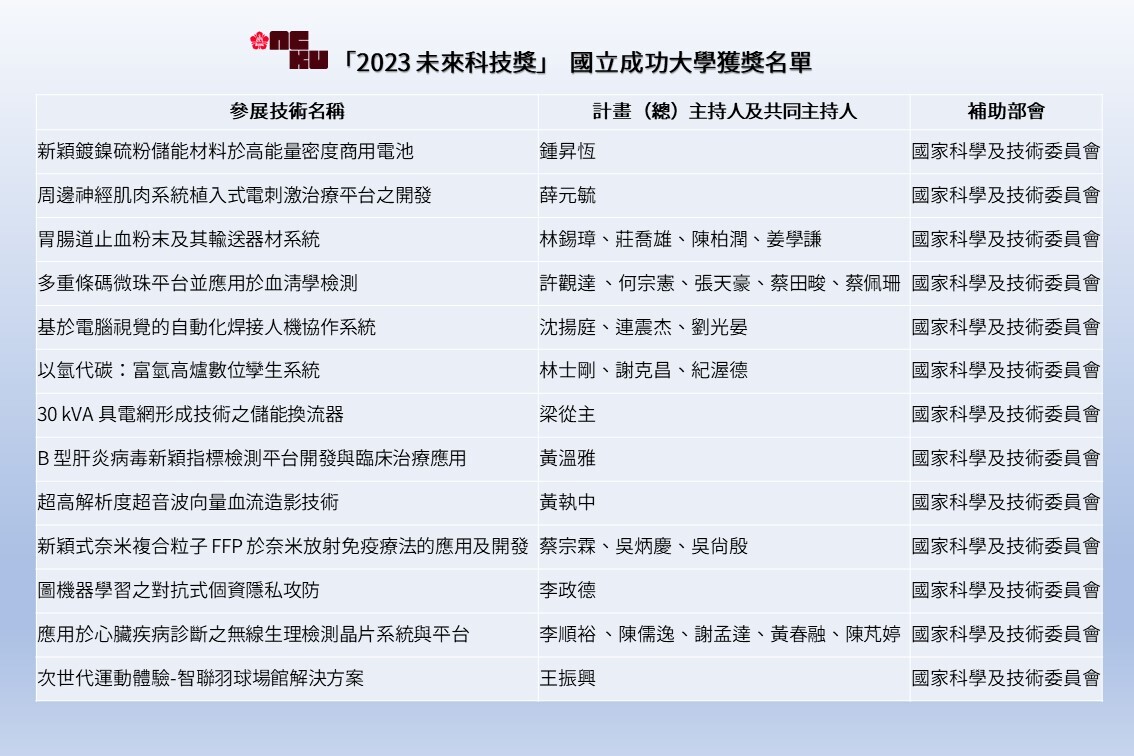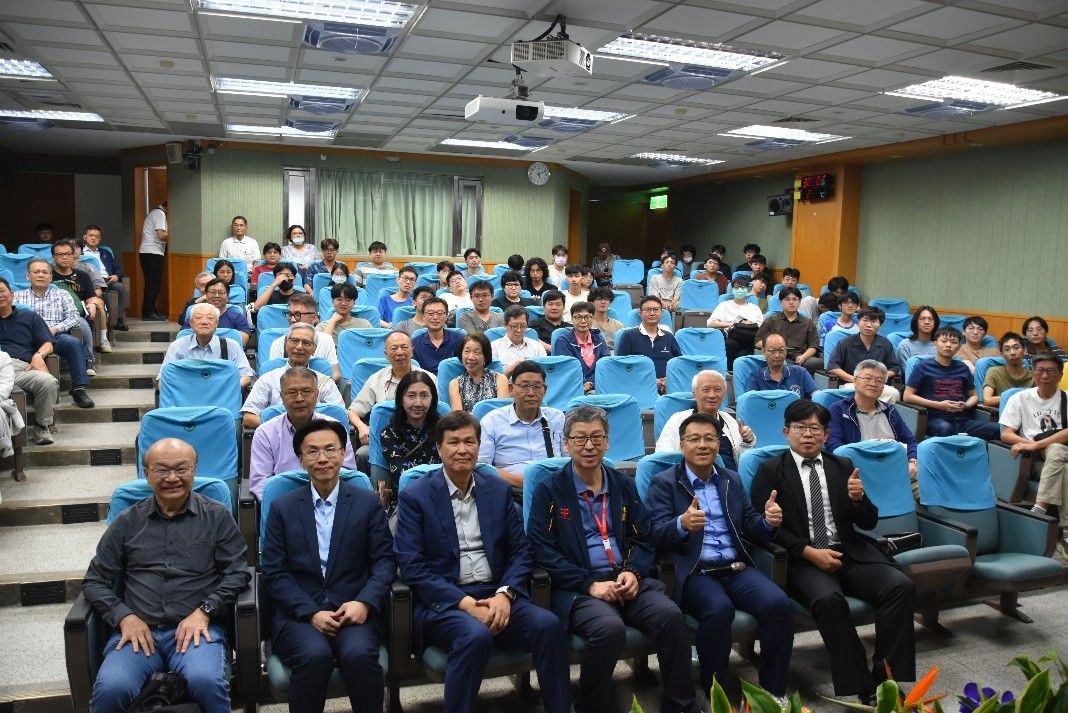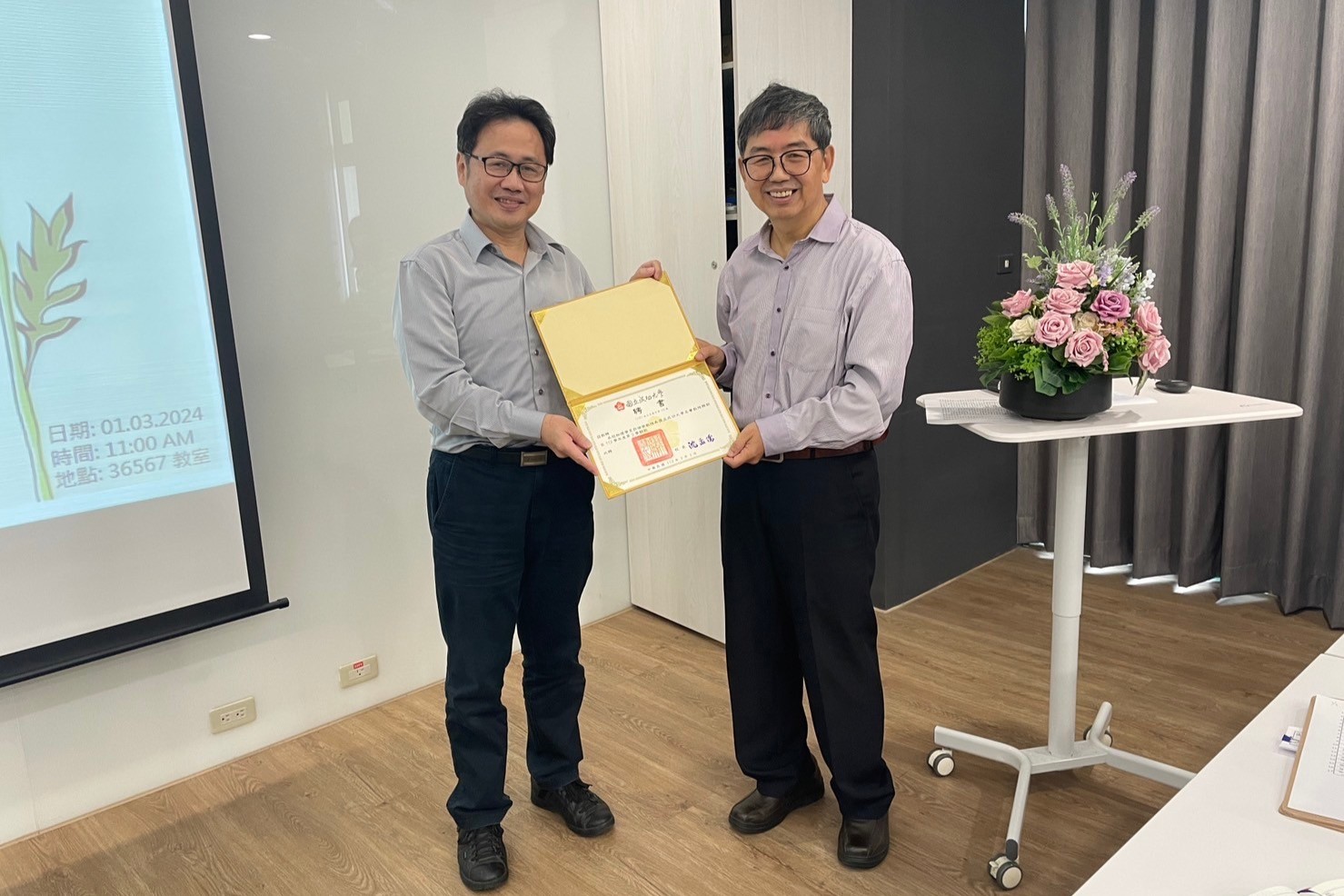SDG9
Professor Wang-Long Li's Paper Wins the 2023 "Tien-Yow Jeme Paper Award," Creating New Opportunities for Motor Core Manufacturer
Professor Wang-Long Li from the Department of Materials Science and Engineering at NCKU won the 2023 "Tien-Yow Jeme Paper Award" from the Chinese Institute of Engineers for his paper "Establishment of a Magneto-Thermal Coupling Prediction Model for Induction Heating of Self-Adhesive Iron Cores." This research, conducted in collaboration with China Steel Corporation, has been highly regarded by both academia and industry. It is hoped that these findings will help domestic iron core manufacturers secure orders for new energy vehicles, contributing to the global electric vehicle market's goal of achieving net-zero carbon emissions.
Professor Li remarked that in recent years, governments worldwide have been committed to environmental sustainability and mitigating climate change, leading to the transformation of various industries. The electric vehicle (EV) industry has emerged as a focal point for achieving net-zero carbon emissions globally. However, the key component of electric vehicle motors, the iron core composed of electromagnetic steel sheets, is crucial. The awarded paper, developed in collaboration with Engineer Hsing-Yi Chen, Researcher Sheng-Yang Lin, Engineer Chia-Hsu Guo from China Steel Corporation's Green Energy and System Integration Research and Development Department, and Dr. Chia-Ta Chen, a postdoctoral researcher from the Department of Materials Science and Engineering at NCKU, focuses on meeting the market demand for self-adhesive iron cores. They have developed key process parameter prediction technology for rapid thermal curing of self-adhesive iron cores. Coupled with China Steel Corporation's self-adhesive electromagnetic steel sheets, this technology establishes an indispensable part of the domestic motor core production process, contributing to the advancement of the domestic motor core industry.
Professor Li highlighted the successful integration of theory and practical verification in developing an efficient process for producing self-adhesive iron cores through induction heating. This approach involved utilizing composite material properties, validating equations and models, and accumulating process data. By controlling coil spacing for uniform temperature distribution, they optimized manufacturing, reducing development time and establishing predictive models for core assembly and temperature control parameters. This research addressed critical challenges in manufacturing self-adhesive electromagnetic steel sheets, benefiting from collaboration between NCKU's academic resources and engineering breakthroughs at China Steel Corporation. This deep collaboration between academia and industry represents a significant achievement.
Professor Li stated, "Doubt at the right place leads to discovering clues hidden in the details." His expertise in friction lubrication led to discussions with China Steel Corporation on issues in the electromagnetic steel sheet induction heating process. This revealed complex coupling among electromagnetic, temperature, and stress fields, crucial for meeting the high-performance demands of electric vehicle motors. Delving into the details, they identified key factors affecting the low yield rate in the induction heating curing of self-adhesive iron cores. By managing temperatures, they ensured thorough melting during bonding and complete curing upon exit. Given the thinness of electromagnetic steel sheets, with four sheets making up just 1mm, and adhesive coatings being only 1% of the sheet thickness, extensive simulations and experimental validations at NCKU and China Steel were necessary. Through the establishment of predictive models for self-adhesive iron core induction heating temperatures, production feasibility significantly improved, potentially opening new opportunities for domestic motor core manufacturers.
Professor Li expresses gratitude to NCKU and China Steel for their support in providing resources and assistance in intellectual property rights, enabling the research team to focus on innovation. He aims to enhance computational capabilities, expand services for domestic stamping mold design, and encourages young talents to explore diverse industries to improve the industrial landscape and capacity.
The Chinese Institute of Engineers inaugurated the Jeme Paper Award in 1961, later renamed the Tien-Yow Jeme Paper Award in 2000, in honor of its first president, Mr. Tien-Yow Jeme. Each year, one paper receives this prestigious award, including a gold medal and prize money. Eligible papers, authored by institute members or specialized engineering societies, must present new discoveries or economic achievements in theory, experimentation, manufacturing, or construction. They should be published within the previous year in engineering journals sponsored by the institute or specialized societies. The selection process takes place annually in April, with recommendations from specialized engineering societies and the institute's publication committee. Upon approval by the board of directors, the award, including the medal and a prize of NT$50,000, is presented at the annual meeting.
Professor Li remarked that in recent years, governments worldwide have been committed to environmental sustainability and mitigating climate change, leading to the transformation of various industries. The electric vehicle (EV) industry has emerged as a focal point for achieving net-zero carbon emissions globally. However, the key component of electric vehicle motors, the iron core composed of electromagnetic steel sheets, is crucial. The awarded paper, developed in collaboration with Engineer Hsing-Yi Chen, Researcher Sheng-Yang Lin, Engineer Chia-Hsu Guo from China Steel Corporation's Green Energy and System Integration Research and Development Department, and Dr. Chia-Ta Chen, a postdoctoral researcher from the Department of Materials Science and Engineering at NCKU, focuses on meeting the market demand for self-adhesive iron cores. They have developed key process parameter prediction technology for rapid thermal curing of self-adhesive iron cores. Coupled with China Steel Corporation's self-adhesive electromagnetic steel sheets, this technology establishes an indispensable part of the domestic motor core production process, contributing to the advancement of the domestic motor core industry.
Professor Li highlighted the successful integration of theory and practical verification in developing an efficient process for producing self-adhesive iron cores through induction heating. This approach involved utilizing composite material properties, validating equations and models, and accumulating process data. By controlling coil spacing for uniform temperature distribution, they optimized manufacturing, reducing development time and establishing predictive models for core assembly and temperature control parameters. This research addressed critical challenges in manufacturing self-adhesive electromagnetic steel sheets, benefiting from collaboration between NCKU's academic resources and engineering breakthroughs at China Steel Corporation. This deep collaboration between academia and industry represents a significant achievement.
Professor Li stated, "Doubt at the right place leads to discovering clues hidden in the details." His expertise in friction lubrication led to discussions with China Steel Corporation on issues in the electromagnetic steel sheet induction heating process. This revealed complex coupling among electromagnetic, temperature, and stress fields, crucial for meeting the high-performance demands of electric vehicle motors. Delving into the details, they identified key factors affecting the low yield rate in the induction heating curing of self-adhesive iron cores. By managing temperatures, they ensured thorough melting during bonding and complete curing upon exit. Given the thinness of electromagnetic steel sheets, with four sheets making up just 1mm, and adhesive coatings being only 1% of the sheet thickness, extensive simulations and experimental validations at NCKU and China Steel were necessary. Through the establishment of predictive models for self-adhesive iron core induction heating temperatures, production feasibility significantly improved, potentially opening new opportunities for domestic motor core manufacturers.
Professor Li expresses gratitude to NCKU and China Steel for their support in providing resources and assistance in intellectual property rights, enabling the research team to focus on innovation. He aims to enhance computational capabilities, expand services for domestic stamping mold design, and encourages young talents to explore diverse industries to improve the industrial landscape and capacity.
The Chinese Institute of Engineers inaugurated the Jeme Paper Award in 1961, later renamed the Tien-Yow Jeme Paper Award in 2000, in honor of its first president, Mr. Tien-Yow Jeme. Each year, one paper receives this prestigious award, including a gold medal and prize money. Eligible papers, authored by institute members or specialized engineering societies, must present new discoveries or economic achievements in theory, experimentation, manufacturing, or construction. They should be published within the previous year in engineering journals sponsored by the institute or specialized societies. The selection process takes place annually in April, with recommendations from specialized engineering societies and the institute's publication committee. Upon approval by the board of directors, the award, including the medal and a prize of NT$50,000, is presented at the annual meeting.
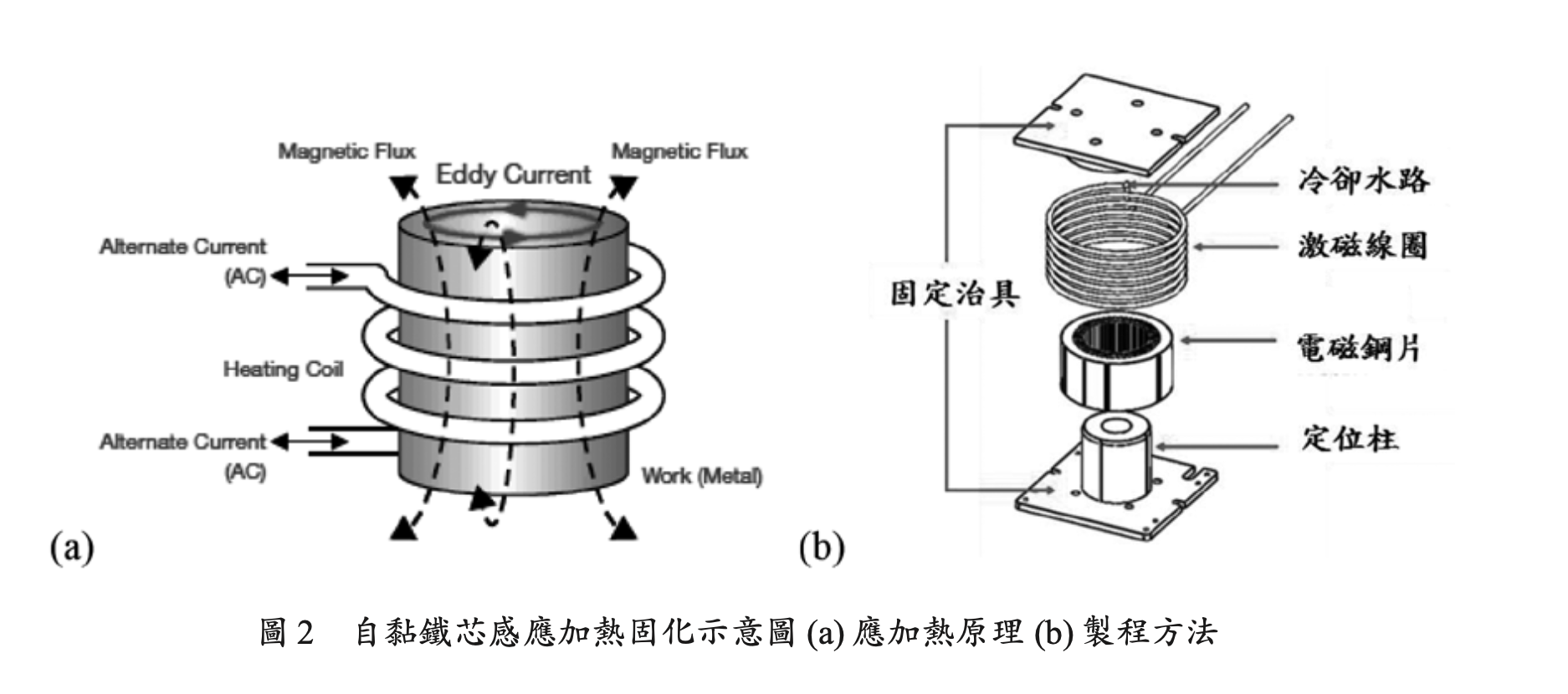
Diagram of Induction Heating and Curing of Self-Adhesive Iron Core.
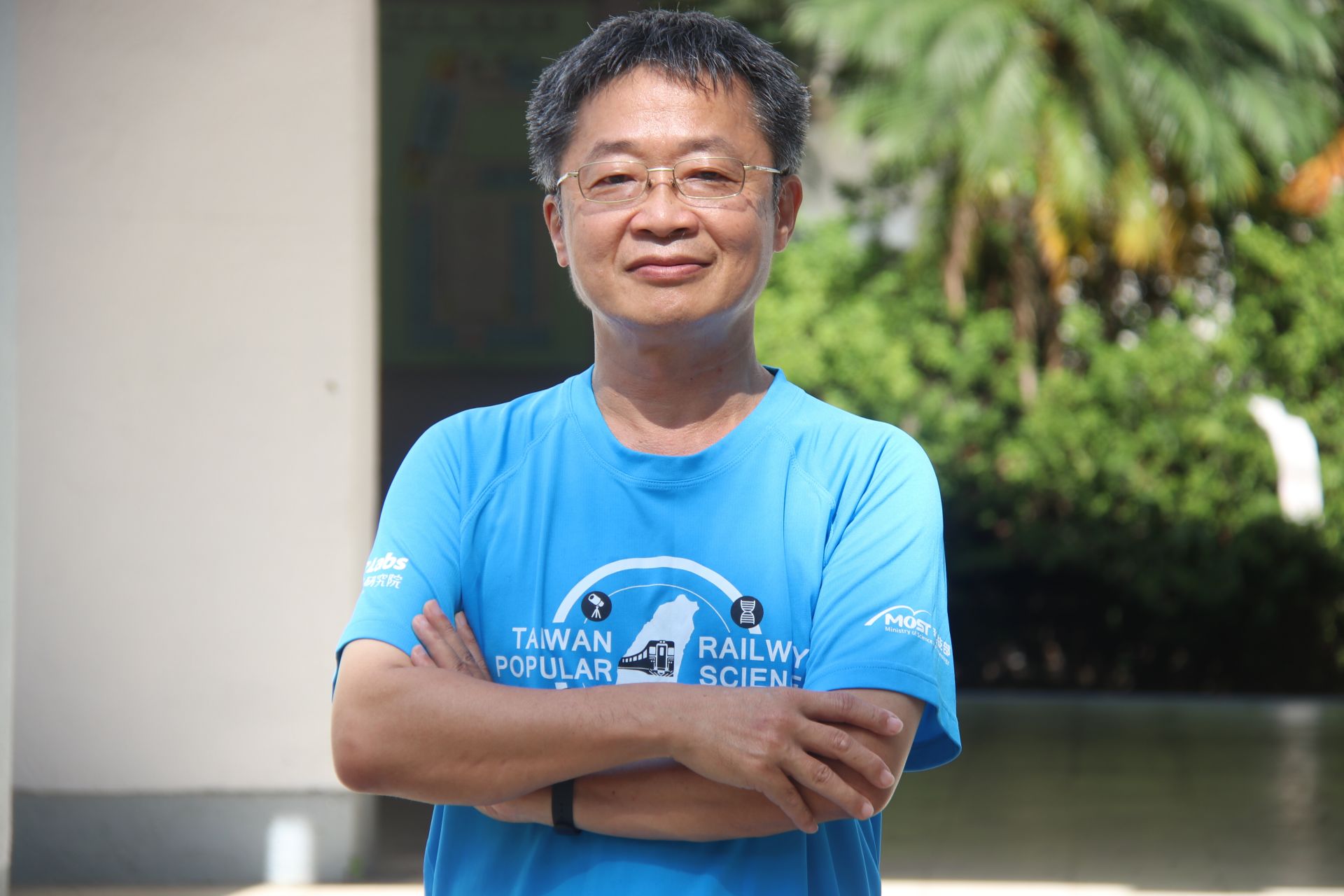
Professor Li from the Department of Materials Science and Engineering at NCKU especially thanks NCKU and China Steel Corporation for providing resources.

